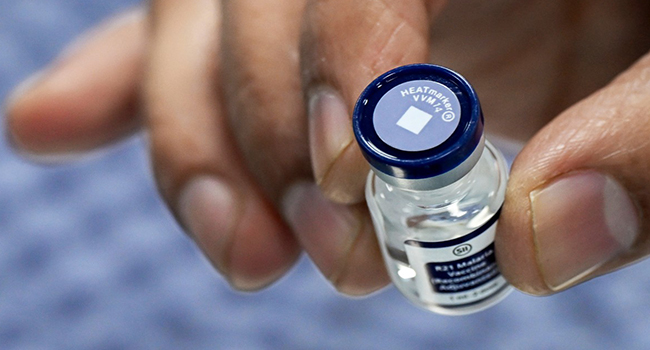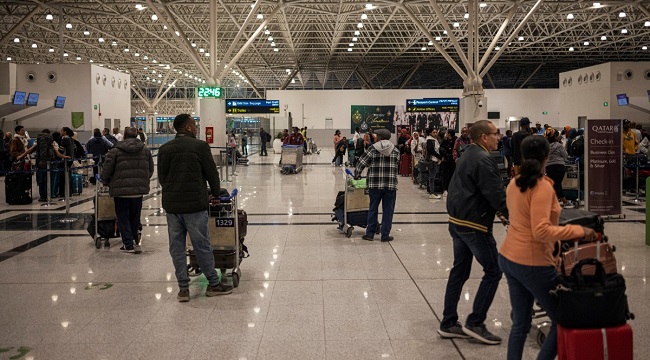The African Commission on Monday asked the Federal government to prevail on the Edo State government to stop the execution of prisoners on death row in Benin prison.
The commission, in a press statement said it “is concerned about reports of imminent execution of two prisoners on death row in Benin prison in Edo State of Nigeria: Daniel Nsofor and Osayinwinde Agbomien, despite the currently appeal in connection with the application of the death penalty in their situation.”
Calling on the Federal government to intervene in the matter, the organisation asked the government to be reminded of “the African Commission on Human and Peoples’ Rights at its 44th Ordinary Session in Abuja, Nigeria, in November 2008 adopted a resolution calling on African States, including Nigeria, that still retain the death penalty to “observe a moratorium on the execution of death sentences with a view to abolishing the death penalty.”
“The said resolution also forbids the application of “the death penalty in conditions not respectful of the right to a fair trial guaranteed under the African Charter on Human and Peoples’ Rights and other relevant international norms”.
“The African Commission therefore urges the Federal Republic of Nigerian to prevail on the Edo state government to exercise restraint, and not to execute the prisoners while their appeal is still pending in court.”
The intervention of the commission may not be unconnected to the appeal it received from the Socio-Economic Rights and Accountability Project (SERAP) last Tuesday.
In a request for provisional measures dated 23 October 2012, and signed by SERAP Executive Director Adetokunbo Mumuni, the organization asked the African Commission to “urgently invoke Article 111 (Rule of Procedure) authority to request that Edo state of the Federation of Nigeria adopt provisional measures in order to stop the irreparable damage that would be caused to the two complainants and their African Charter rights.”
The request for provisional measures was submitted in conjunction with SERAP’s communication to the African Commission.
According to the organization, “there are serious, persistent and irreparable violations of the Complainants’ rights to life; and to appeal to an independent and impartial tribunal, and fair trial guarantees during appeals require the Commission’s immediate and urgent attention.”
“Despite its obligations under the African Charter on Human and Peoples’ Rights and other international treaties to which Nigeria is a state party, the Edo State authorities of the Federation of Nigeria continue to violate the fair trial and other rights of the two Complainants and put them at risk of imminent execution,” the organization stated.
“SERAP and Amnesty International have received reports that the gallows at Benin prison were inspected and tested on 22 October 2012. SERAP fears the inmates may be executed any moment. Two prisoners on death row in Benin Prison are in imminent danger of being hanged after the governor of Nigeria’s Edo State signed their death warrants last week,” the organization also stated.
The organization said that, “The decision to sign a death warrant despite pending appeal by the two prisoners against their death sentences constitutes a fundamental breach of the prisoners’ right to fair trial, including the right to an appeal to an independent and impartial tribunal.
According to the organization, “The resumption of executions by Edo State follows an announcement by state governors in June 2011 that they would review all cases of death row inmates and sign off executions as a means of decongesting the country’s prisons.”
“Many death row inmates in Nigeria were sentenced to death following blatantly unfair trials or after spending more than a decade in prison awaiting trial. The 2004 National Study Group on Death Penalty and the 2007 Presidential Commission on the Administration of Justice both stressed that the Nigerian criminal justice system cannot guarantee a fair trial and called for a moratorium on the death penalty,” the organization further stated.
The organization argued that, “the planned execution of two prisoners on death row on the sole ground that they are ‘becoming unmanageable’ while the prisoners still have their appeal pending does not offer a fair and effective solution to the perceived problem.”
“Justice is based on respect for the rights of every individual. As the Universal Declaration of Human Rights puts it, ”recognition of the inherent dignity and the equal and inalienable rights of all members of the human family is the foundation of freedom, justice and peace in the world”. The Declaration also provides that “everyone is entitled in full equality to a fair and public hearing… of any criminal charge” an “everyone charged with a penal offence has the right to be presumed innocent until proven guilty according to law in a public trial,” the organization also argued.
The organization further stated that, “The right to a fair trial is a fundamental safeguard to assure that individuals are not unjustly punished. It is indispensable for the protection of other human rights such as the right to freedom from torture and cruel or inhuman treatment, and the right to life. However, when people are subjected to unfair trials, justice cannot be served.”
The organization is asking the commission to:
1. Consider the present Communication under Articles 55, 56 and 58 of the African Charter. SERAP further urges the African Commission to undertake an in-depth study, based on the “series of serious” and “massive” violations alleged in this Communication
2. By virtue of its consistent denial of fair trial and other rights to prisoners on death row in Benin prison under dehumanizing and harsh conditions, find that Edo State of the Federation of Nigeria has violated Articles 1, 2, 3, 4, 5, 6, and 7 of the Charter;
3. By virtue of its decision to execute the two prisoners on death row in Benin prison, find that Edo State of the Federation of Nigeria has violated the Complainants’ right to life under Article 4 of the African Charter, and the resolutions on moratorium on executions adopted by both the African Commission on Human and Peoples’ Rights and the UN General Assembly.
4. Find that Edo State of the Federation of Nigeria has deliberately and wilfully disregarded the request by the African Commission to the effect that African countries, including Nigeria and its constituting units that still retain the death penalty should fully comply with their obligations under the African Charter on Human and Peoples’ Rights, and guarantee to every person accused of crimes for which capital punishment is applicable, fair trial standards.
5. Ask Edo State of the Federation of Nigeria to pay appropriate compensation to the Complainants for the multiple violations of their Charter rights and freedoms.
6. Ask Edo State of the Federation of Nigeria to faithfully and fully implement resolutions on moratorium on executions adopted by both the African Commission on Human and Peoples’ Rights and the Third Committee of the UN General Assembly.




